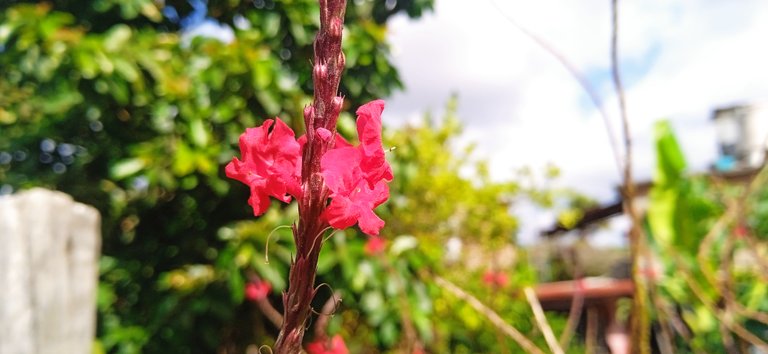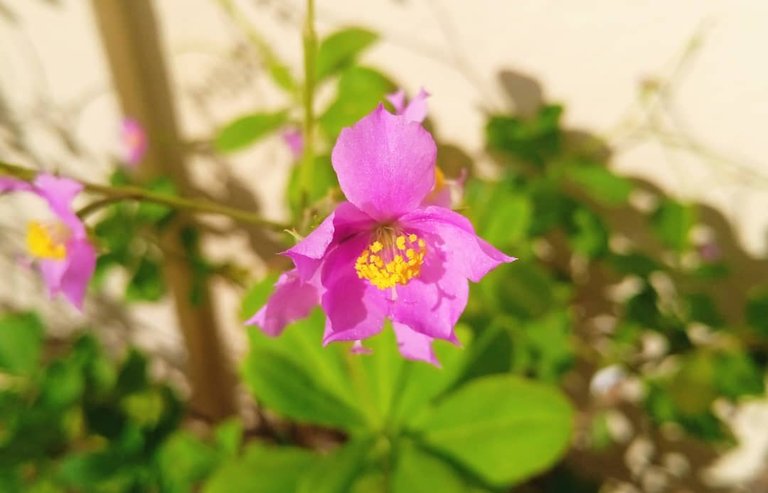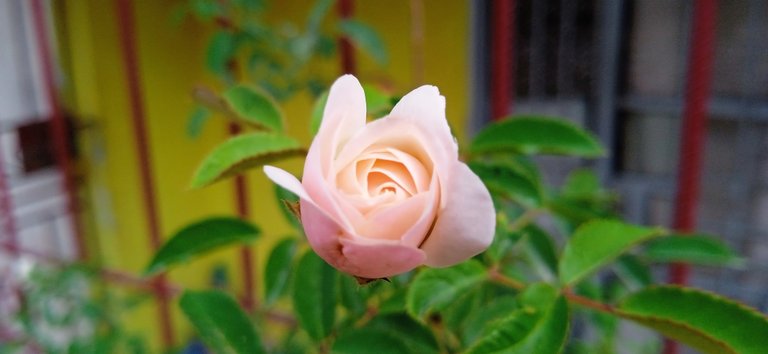Hello, friends of Holos & Lotus.
There's a thin, almost invisible line between resilience and resignation. I think we all know it. And crossing that line means betraying myself.

According to the RAE, resilience is the capacity of a living being to adapt in the face of a disturbing agent or an adverse state or situation.
I feel it like bending without breaking, learning from adversity and emerging stronger. It's active. It's getting back up with new knowledge, with a scar that reminds me of an old wound.

Resilience carries within its essence the seed of hope and struggle.
Resignation, on the other hand, according to the Royal Spanish Academy, is conformity, tolerance, and patience in the face of adversity.
Unlike resilience, resignation is too passive. We could say it's almost like giving up. It's the bitter, repeated whisper of "this is how it is and it can't be changed." I hear it all too often.
Especially not when you truly can't, but when you don't want to change.
Yes, friends, because I'm not talking about resignation in the face of the inevitable, like cases of death and similar. I'm talking about those cases where there is a solution, but we don't have the courage to get out of our problem, and we fool ourselves into thinking that it's better to resign ourselves.

I will never bow my head and accept that pain, injustice, or monotony are an irrevocable destiny. Resignation doesn't strengthen you; it empties you inside, turns you into a spectator of your own life, waiting for time to pass without believing that anything will ever improve.
Just consider that among the synonyms for resignation are: conformism, renunciation, and submission. Three words we should all erase from our dictionaries, eliminate from our lives.
However, among their antonyms are: nonconformity, rebellion. Two of the words that define truly good artists and people.

Yes, we need to gain strength. Life hits us all, and we need that resilience to keep from falling apart. We must even learn to resign ourselves to the truly inevitable, like the loss of a loved one or an irreversible illness.
Unfortunately, that's how it is. Resignation is an act of peace, of accepting what cannot be controlled, so as not to poison ourselves with an impossible battle.

But the great danger lies in normalizing and resigning ourselves to resilience in the face of what can be changed.
We shouldn't be resilient in order to endure forever. Resilience is not an end, but a means to get out of the hole, not to get used to living in it. Using resilience to tolerate the intolerable (a job that annihilates us) is confusing willpower with submission.

The real goal isn't to learn to be incredibly resilient or eternally resigned. The goal is to move forward, with cunning and courage, to seek or build a comfort zone that doesn't demand either of us.
When I create a space where I don't have to constantly bend to avoid breaking, or give in to survive, I feel much better. A place where I can simply be and do. Where strength is used to grow, not to endure. And where peace doesn't have the bitter taste of defeat, but the sweet taste of choice.
Versión en español
Hola, amigos de Holos & Lotus.
Existe una delgada línea, casi invisible, entre la resiliencia y la resignación. Creo que todos la conocemos. Y cruzar esa línea significa traicionarse a mí misma.

Según la RAE, la resiliencia es la capacidad de adaptación de un ser vivo frente a un agente perturbador o un estado o situación adversos.
Lo siento como doblarse sin romperse, de aprender de la adversidad y salir reforzada. Es activa. Es un volver a levantarme con un conocimiento nuevo, con una cicatriz que me recuerda una vieja herida.

La resiliencia, lleva en su esencia la semilla de la esperanza y la lucha.
La resignación, en cambio, según la Real Academia Española, es la conformidad, tolerancia y paciencia ante las adversidades.
A diferencia de la resiliencia, la resignación es demasiada pasiva. Podemos decir que es casi que es claudicar. Es el susurro amargo y reiterado de “esto es así y no se puede cambiar”. Lo escucho con demasiada frecuencia.
Sobre todo, no cuando no se puede de verdad, sino cuando no se quiere cambiar.
Sí, amigos, porque no hablo de la resignación ante lo inevitable, como los casos de la muerte y casos así. Hablo de esos casos en que hay una solución, pero no tenemos el valor para salir de nuestro problema y nos engañamos diciéndonos que, mejor nos resignamos.

Yo, por lo menos, nunca voy a agachar la cabeza y aceptar que el dolor, la injusticia o la monotonía son un destino irrevocable.
La resignación no fortalece; te vacía por dentro, te convierte en una espectadora de tu propia vida, esperando a que pase el tiempo sin creer que nada vaya a mejorar.
Nada más fíjense que entre los sinónimos de resignación se encuentran: conformismo, renuncia y sumisión. Tres palabras que todos debemos borrar de nuestro diccionario, eliminar de nuestras vidas.
Sin embargo, entre sus antónimos están: inconformismo, rebeldía. Dos de las palabras que definen a los artistas y personas buenas de verdad.

Sí, es necesario ganar en fuerzas. La vida nos golpea a todas y necesitamos esa resistencia para no desmoronarnos. Incluso debemos aprender a resignarnos ante lo verdaderamente inevitable, como la pérdida de un ser querido o una enfermedad irreversible.
Lamentablemente, es así. Ahí, la resignación es un acto de paz, de aceptación de lo que no se puede controlar, para no envenenarnos con una batalla imposible.

Pero el gran peligro está en normalizar y resignarnos a la resiliencia ante lo que sí se puede cambiar.
No debemos ser resilientes para aguantar siempre. La resiliencia no es un fin, sino un medio para salir del pozo, no para acostumbrarse a vivir en él. Al usar la resiliencia para tolerar lo intolerable (un trabajo que nos anula), es confundir la fuerza de voluntad con la sumisión.

El verdadero objetivo no es aprender a ser increíblemente resilientes ni eternamente resignadas. El objetivo es salir adelante, con astucia y valor, para buscar o construir una zona de confort que no nos exija ni lo uno ni lo otro.
Cuando creo un espacio donde no tengo que doblarme constantemente para no quebrarme, ni tenga que claudicar para sobrevivir, me siento mucho mejor. Un lugar donde, simplemente, pueda ser y hacer. Donde la fuerza se utilice para crecer, no para aguantar. Y donde la paz no tenga el sabor amargo de la derrota, sino el dulce sabor de la elección.


